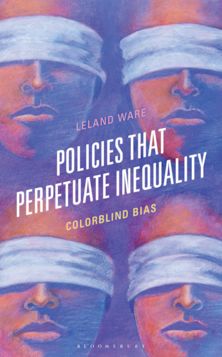- Home
- ACADEMIC
- Politics & International Relations
- Race and Ethnicity
- The Voice of Anna Julia Cooper
The Voice of Anna Julia Cooper
Including A Voice From the South and Other Important Essays, Papers, and Letters
The Voice of Anna Julia Cooper
Including A Voice From the South and Other Important Essays, Papers, and Letters
You must sign in to add this item to your wishlist. Please sign in or create an account
Description
This collection is a major contribution to the reconstruction of gender balance in African-American history -Manning Marable, Columbia University
Table of Contents
Part 2 I. The Colored Woman's Office: A Voice from the South
Chapter 3 Our Raison d'Etre (1892)
Chapter 4 Womanhood: A Vital Element in the Regeneration and Progress of a Race (1886)
Chapter 5 The Higher Education of Women (1890-1891)
Chapter 6 "Woman versus the Indian" (1891-1892)
Chapter 7 The Status of Woman in America (1892)
Part 8 II. Race and Culture: A Voice from the South
Chapter 9 Has America a Race Problem? If So, How Can It Best Be Solved? (1892)
Chapter 10 The Negro As Presented in American Literature (1892)
Chapter 11 What Are We Worth? (1892)
Chapter 12 The Gain from a Belief (1892)
Part 13 III. The Range of Cooper's Voice: Feminism, Social Service, Education, and Race Politics
Chapter 14 The Intellectual Progress of the Colored Women in the United States since the Emancipation Proclamation: A Response to Fannie Barrier Williams (1893)
Chapter 15 The Ethics of the Negro Question (1902)
Chapter 16 The Social Settlement: What It Is, and What It Does (1913)
Chapter 17 Sketches from a Teacher's Notebook: Loss of Speech through Isolation (1923?)
Chapter 18 Foreword to Le Pelerinage de Charlemagne (1925)
Chapter 19 The Humor of Teaching (1930)
Chapter 20 My Racial Philosophy (1930)
Chapter 21 The Negro's Dialect (1930s?)
Chapter 22 On Education (1930s?) Angry Saxons and Negro Education (1938)
Chapter 23 Hitler and the Negro (1942?)
Part 24 IV. World Politics, Race, and Slavery: The Historical Studies
Chapter 25 The Social Conditions of the French-American Colonies: The Class Structure (1925)
Chapter 26 Black Slavery and the French Nation (1925)
Chapter 27 Equality of Races and the Democratic Movement (1925)
Chapter 28 Legislative Measures Concerning Slavery in the United States: 1787-1850 (1925)
Part 29 V. Reflections on Her Life: Memoirs, Occasional Writings, Letters: 1925-1958
Chapter 30 The Early Years in Washington: Reminiscences of Life with the Grimkes (1951)
Chapter 31 The Third Step: Cooper's Memoir of the Sorbonne Doctorate (1945-1950?)
Chapter 32 Selected Letters and Other Writings (1925-1958)
Chapter 33 The Life of Anna Julia Cooper: A Chronology
Chapter 34 Index
Product details
| Published | Jan 01 2000 |
|---|---|
| Format | Ebook (Epub & Mobi) |
| Edition | 1st |
| Extent | 370 |
| ISBN | 9780585120454 |
| Imprint | Rowman & Littlefield Publishers |
| Series | Legacies of Social Thought Series |
| Publisher | Bloomsbury Publishing |
About the contributors
Reviews
-
Thanks to this much-awaited edition with its excellent introduction, Anna Julia Cooper will no longer be merely a citation in the indices of works on women and people of color. As their title aptly announces, Esme Bhan and Charles Lemert have retrieved for us The Voice of Anna Julia Cooper.
David Levering Lewis, Rutgers University, historian and author of W.E.B. Du Bois: Biography of a Race, 1868-1919, winner of the Pulitzer Prize f
-
A much-needed addition to the dearth of primary sources which will illuminate one of history's most important feminist figures.
Paula Giddings, author of When and Where I Enter: The Impact of Black Women on Race and Sex in America
-
Cooper may be the founding figure in contemporary writings bringing together race, class, and gender-the foremother of today's influential black feminist writers. This collection is a major contribution to the reconstruction of gender balance in African American history.
Manning Marable, M. Moran Weston/Black Alumni Council Professor of African-American Studies, Columbia University
-
Writing over a fifty-year period, Cooper not only participated in the ongoing dialogue over race relations and racial uplift in the United States, but also turned a scholarly lens on the history of the slave trade and the development of the Black Atlantic. She belongs in the company of W.E.B. Du Bois.
Carla L. Peterson, author of Doers of the Word: African American Women Speakers and Writers in the North (1830-1880)
-
Historians, literary critics, and general readers alike will appreciate having access to Cooper's viewpoints.
Kathryn L. Seidel, University of Central Florida, Journal of Southern History
-
The Voice of Anna Julia Cooper is, quite simply, a fine collection. Carefully edited, it contributes greatly to the study of the history of this country.
Cally L. Waite, Teachers College, Columbia University, History of Education Quarterly



































